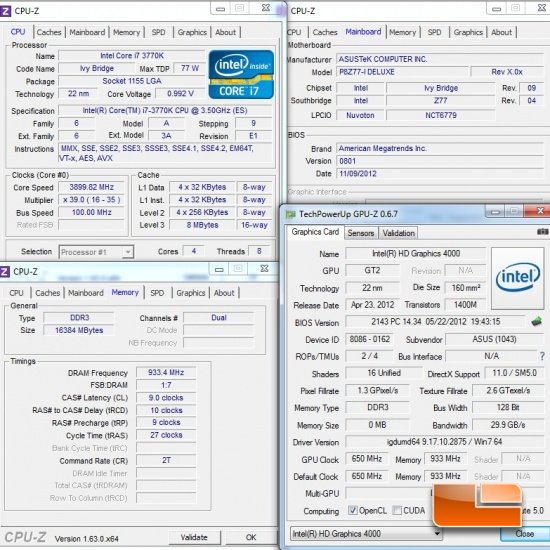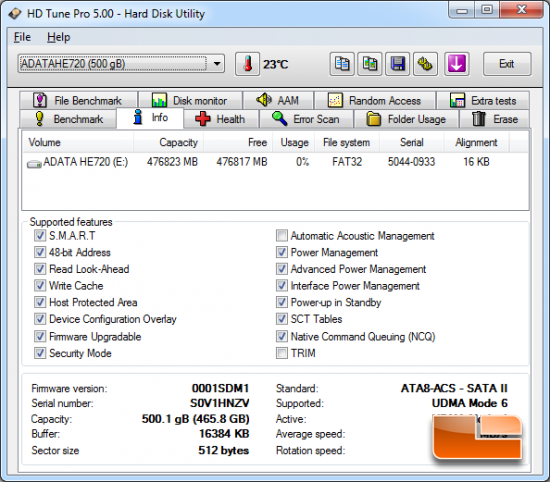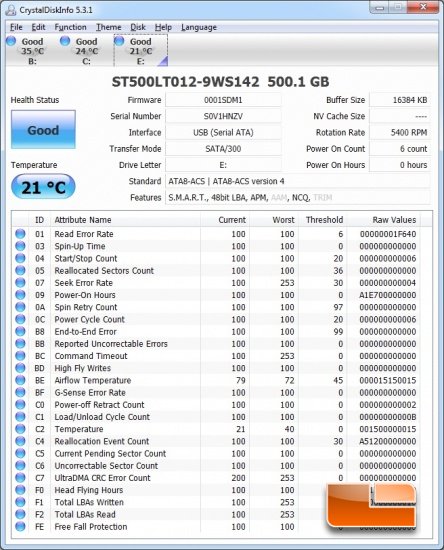ADATA DashDrive Elite 500GB HE720 External Drive Review
Test System and Drive Info
Before we look at the numbers, here is a brief glance at the test system that was used. All testing was done on a fresh install of Windows 7 Ultimate 64-bit. All benchmarks were completed on the desktop with no other software programs running.
Intel Z77 Test Platform

The Intel Z77 platform that we used to test the ADATA HE720 was running the ASUS P8Z77-I Deluxe motherboard with BIOS 0801 that came out on 11/09/2012. The Corsair Vengeance 16GB 1866MHz memory kit was set to 1866MHz with 1.5v and 9-10-9-27 2T memory timings. This mainboard uses both an Intel and ASMedia USB 3.0 controller for the USB 3.0 headers. We ran driver version v1.0.4.220 (4/16/2012) on the Intel controller and ASMeda driver v1.16.2.0 (8/20/2012). We tested on both controllers, but found that the performance results were the same as the performance bottleneck was the hard drive and not the USB 3.0 interface.

| Intel Test Platform | |||||
|---|---|---|---|---|---|
|
Component |
Brand/Model |
Live Pricing |
|||
|
Processor |
Intel Core i7-3770K |
||||
|
Motherboard |
ASUS P8Z77-I | Click Here | |||
|
Memory |
16GB Corsair Vengeance | Click Here | |||
|
Video Card |
Intel HD 4000 |
Click Here | |||
|
Hard Drive |
Kingston HyperX 480GB |
Click Here | |||
|
Cooling |
CoolIt Eco II 140mm |
Click Here | |||
|
Power Supply |
Corsair AX650 Gold |
Click Here | |||
|
Operating System |
Windows 7 Ultimate 64-Bit |
Click Here | |||
Detailed Information with HD Tune Pro 5.00:

I fired up HD Tune Pro to take a look at the health of the drive and to see the drive attributes. I noticed that the drive features a 16KB alignment out of the box on a FAT32 file system. I also noticed that ADATA is using a 5400 RPM 2.5″ SATA notebook hard drive inside with 16 MB of cache and firmware version 0001SDM1. According to HD Tune Pro the average speed of this drive is 76 MB/s, but we shall see on our own when we benchmark the ADATA HE720!
Detailed Information with CrystalDiskInfo 5.3.1:

I also fired up CrystalDiskInfo and it showed basically the same information, but I know some readers prefer one over the other, so both were included.

Comments are closed.